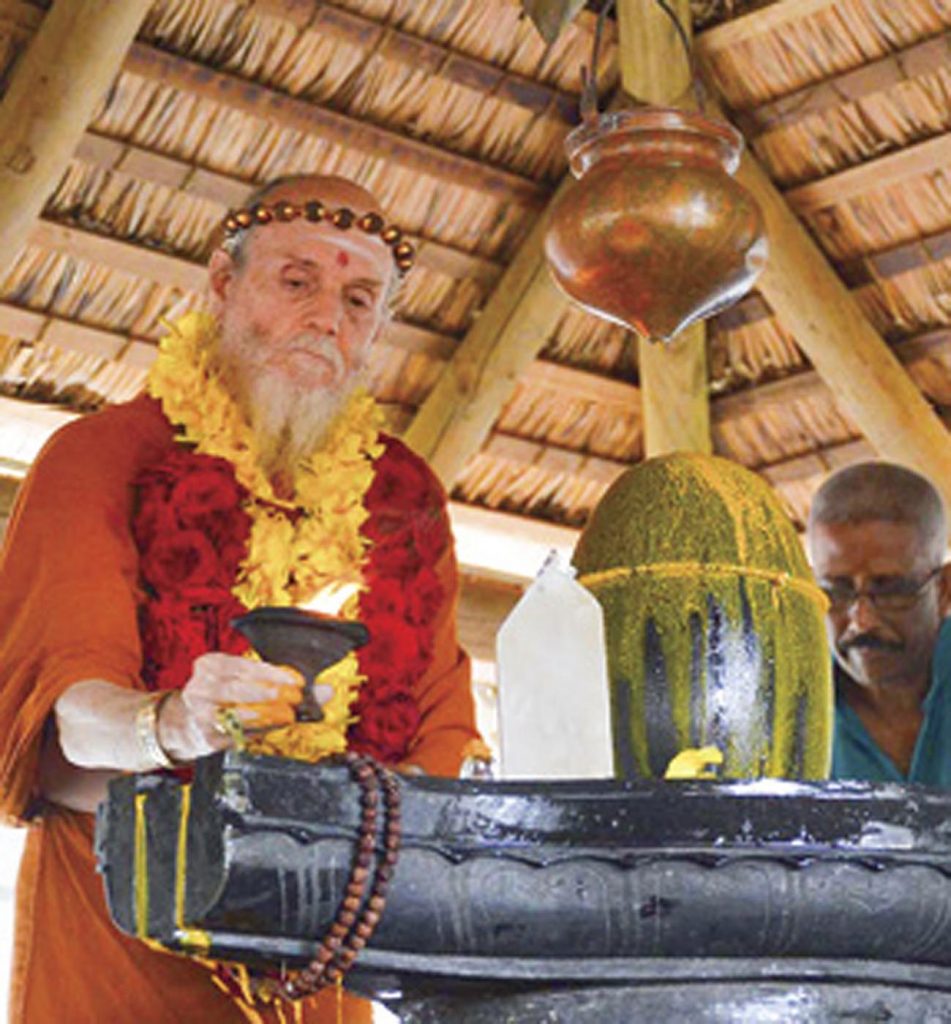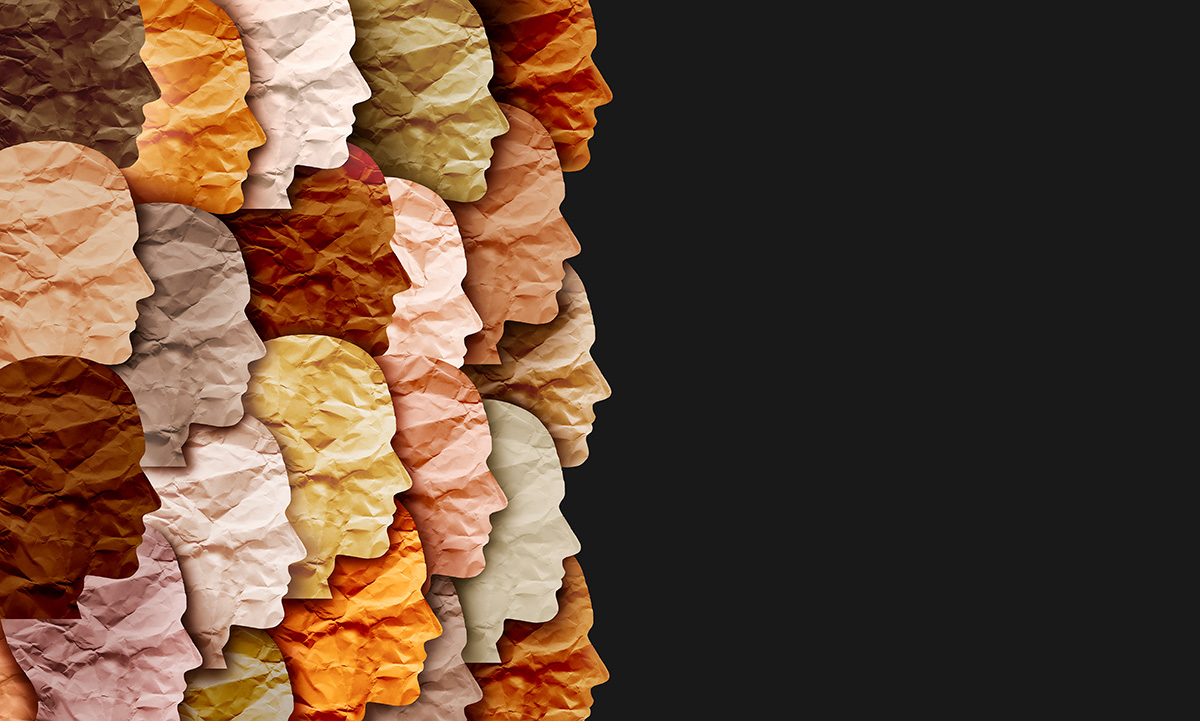In a world mired in stubborn opinion, bigotry and callousness, it is important to reflect on ideals that can be an antidote.
By Satguru Bodhinatha Veylanswami


World populations are experiencing ever-increasing diversity in their interpersonal and international interactions. This is due to freer immigration and refugee movements, global travel and, perhaps most significantly, increased Internet exposure to other religions, cultures, belief structures and ethnicities. Some people are comfortable with this burgeoning diversity and can be described as tolerant individuals. Their response to those who are different is to accept and trust, befriend and help.
Others are viscerally uncomfortable and can be described as intolerant. Their response to those who are different is to reject and distrust, hate and even inflict injury. Intolerance is the root cause of a significant amount of the violence in the world today.
Intolerance manifests in degrees. Let’s review common terms used to describe this narrow-minded outlook, in the order of the harshest to the mildest forms. (Definitions are from www. dictionary.com.)
hatred: intense dislike or extreme aversion or hostility.
bigotry: stubborn and complete intolerance of any creed, belief or opinion that differs from one’s own.
intolerance: 1) unwillingness or refusal to tolerate or respect opinions or beliefs contrary to one’s own; 2) unwillingness or refusal to tolerate or respect persons of a different social group, especially members of a minority.
prejudice: unreasonable feelings, opinions or attitudes, especially of a hostile nature, regarding an ethnic, racial, social or religious group.
bias: a particular tendency, trend, inclination, feeling or opinion, especially one that is preconceived or unreasoned.
The goal is tolerance: a fair, objective and permissive attitude toward those whose opinions, beliefs, practices, racial or ethnic origins, etc., differ from one’s own; freedom from bigotry.
In Hinduism, tolerance is honored as a great virtue, supported by three fundamental beliefs. The first belief is on the nature of God. Hinduism has a wide diversity of traditions, but followers of the different traditions respect one another and worship side by side in many temples. Through India’s long history there arose four principal Hindu denominations: Saivism, Shaktism, Vaishnavism and Smartism. To Saivites the Supreme is Siva. Shaktas refer to the Supreme as Shakti, to Vaishnavas He is Vishnu and Smartas call the Supreme Being Brahman. The name is different, the tradition is different, but it is the same Supreme Being that is being worshiped by all Hindus. An ancient verse from the Rig Veda (1.164.46) is often quoted in this regard: Ekam sat viprah bahuda vadanti. “Truth is one, sages express it variously.”
The second belief is a natural extension of the first: There is no exclusive path, no one way for all, because the God we worship is the same Supreme Being in whom peoples of all faiths find solace and peace. My guru observed, “Since the inner intent of all religions is to bind man back to God, Hindus honor the fact that ‘Truth is one, paths are many.’” Ekam sat anekah panthah.
Our popular Educational Insight “Fourteen Questions People Ask about Hinduism” explains, “In India, where Hindus are the overwhelming majority, the rights of minority religions have always been honored. Hindus have welcomed, embraced and lived peacefully among other religions for centuries. During those same centuries, Hinduism itself evolved into hundreds of strains, and thus Hindus are fully at home with many different traditions and viewpoints within their own faith. Hence, they are naturally tolerant of other religions, respecting the fact that each has unique beliefs, practices, goals and paths of attainment, and not objecting when the doctrines of one conflict with those of another. Hindus readily accept the idea that it is not necessary, desirable or even possible for everyone to hold the same beliefs. And certainly such differences should never be cause for tension, criticism, intolerance or violence.”
Some Hindus citing the above verse, “Truth is one, paths are many,” take it to mean that all religions are the same. In reality, all religions are not the same, nor is that notion indicated by this verse. It simply says that all religions revere the one truth; all believe in the One Supreme Being. Their paths are distinct; their beliefs and practices are different. Instead of saying, “All religions are the same,” it is better to state that “all religions are good.”
“Fourteen Questions” continues, “Hindus do not proselytize, meaning they do not try to convert members of other faiths to their own. Proselytizing is based upon the belief that one’s religion is the only true religion and everyone else should join it. Hindus hold the view that all faiths are beneficial. A devout Hindu is supportive of all efforts that lead to a pure and virtuous life and would consider it unthinkable to dissuade a sincere devotee from his chosen faith. They know that good citizens and stable societies are created from groups of religious people in all nations. While encouraging others to follow their chosen path with dedication, Hindus hold Sanatana Dharma to be the fullest expression of religion, and do accept sincere souls who seek entrance into Hinduism.”
My guru, Sivaya Subramuniyaswami, gave this strong statement on not seeking to convert: “Every instinct in Hinduism rebels against the doctrine which is oppressive or narrow-minded. Every instinct in Hinduism rejoices in tolerance and in acknowledgement of the many paths, even those that seem to contradict its own. When you believe that God is everywhere, in all there is, wherever it is, it becomes impossible to hate or injure or seek to aggressively convert others.”
A third key Hindu belief that nurtures tolerance is that we are all divine beings, created by God. As I pointed out in my April 2016 editorial, “Growing Up without Prejudice,” “Hindus do not accept the concept that some individuals are evil and others are good. The Upanishads tell us that each soul is emanated from God, as a spark from a fire, then begins a spiritual journey which eventually leads back to God. All human beings are on this journey, whether they realize it or not. So, when a Hindu sees a person whom others call bad or evil, he thinks to himself, ‘This is a young soul, acting in terrible ways, but one day, in the course of many lives, he will realize his errors and adhere to dharma.’ The Hindu practice of greeting one another with namaste, honoring God within the other person, is a way this philosophical truth is practiced on a daily basis. The Mandukya Upanishad states: Ayam atma Brahma, ‘The soul is God.’”
The idea that we are all divine beings is taken one step further in the adage Vasudhaiva kutumbakam, “The whole world is a family.” This statement is part of a verse from the Maha Upanishad. The full verse reads: yam nijah paro veti ganana laghuchetasam, udaracharitanam tu vasudhaiva kutumbakam. “ ‘One is a relative, the other a stranger,’ say the small-minded. ‘The entire world is a family,’ live the magnanimous.” It is notable that this verse is engraved in the entrance hall of the parliament of India and often quoted in speeches.
In a 2003 editorial, “Teaching Peacefulness to Children,” I pointed out that “Everyone is family oriented. Most of what we do is for the purpose of benefiting the members of our family. We want them to be happy, successful and religiously fulfilled. And when family is defined to be the whole world, it is clear that we wish everyone in the world to be happy, successful and religiously fulfilled.” The popular Hindu prayer that captures this sentiment is Sarve janah sukhino bhavantu, “May all people be happy.”
One last thought: a subtle form of bias is to think in terms of stereotypes. This is problematic in that stereotypes stand in the way of seeing the distinct qualities in each individual. Common stereotypes are that the Chinese are good businessmen or Germans are efficient. And recently, at least in the US, we find a new stereotype—Asian Indians are all really smart. Of course, not all Chinese are good at business, not all Germans are efficient and not all Asian Indians are really smart. Perceiving others without resorting to stereotypes honors each individual’s unique qualities.
Tolerance is part of the Hindu DNA, so it is essential that all Hindus—especially younger Hindus—clearly understand its importance and share such acceptance with others. In speaking at the Global Forum for Human Survival, Development and Environment in Moscow in 1990, Gurudeva stressed the need to teach tolerance to younger generations: “We need, in the century ahead, to teach all children tolerance, openness to different ways of life, different beliefs, different customs of dress and language. We need to stop teaching them to fear those who are different than themselves, stop teaching them hatred for peoples of other colors and other religions, stop teaching them to see the world as a field of conflict and instead instill in them an informed appreciation and a joyous reverence for the grand diversity we find around us.”


